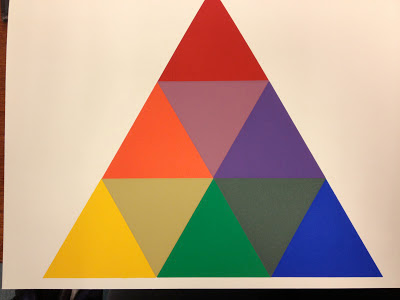
Tonight's
James River Writers' Writing Show featured Joshua Kendall and Alan Cheuse mulling over the topic "The Future of Fiction." Both Josh and Alan shared their professional backgrounds and experiences. Neither of them, which may have been the non-directive style of the moderator, Brandon Reynolds, actually focused on the future of fiction. Tangentially, as a side bar to relating their experiences as editor (Josh) and reviewer (Alan), they touched on the future of the
printed fiction book.
Alan's contention was that even though there are more people, the number of buyers of printed books appears to be stuck at the same number it has always been. His suggestion was that we proselytize readers. No one mentioned the evolving alternative avenues for fiction, like for example podcasts, or that fiction is the basis for most movies. It is standard industry practice for movie companies to review new fiction even before it is printed. Little mention was made of how fiction is consumed by movie goers and TV viewers. No one brought up podcasts or those who read books online.
They talked about the horrendous practice of refunding money to booksellers for unsold books. No one mentioned that Print on Demand (POD) might be an alternative to that. Perhaps books printed right at the book store? Neither did anyone mention distribution of electronic books as a way to avoid that refund.
Another issue raised was bricks and mortar booksellers running out of books and not keeping up with demand. Here, again, no one mentioned that POD might be a solution.
The most futuristic notion came not from the panel but from an attendee who raised the possibility that editors may need to partner directly with booksellers (rather than through a house) to get books out. Alan then mentioned the potential for sponsorship of books by commercial concerns, joking that perhaps a vampire book could be sponsored by the American Red Cross.
Josh mentioned the increasing number of independent publishers which Alan corroborated by indicating that a large number of the books sent to him for review came from independent publishers. While both men discouraged authors from taking the lone ranger unedited and unvetted route of self-publishing, neither of them considered that the ubiquitous online access to self publishing houses makes it easy to set up an independent publishing house (if you happen to be an editor and have a team to work with).
It seems to me that we have fiction, we've always had fiction and we'll always have fiction. Whether it's a printed book, an electronic file or a podcast. The future of fiction is absolutely brilliant. There are so many more avenues for distribution and so many more mediums that are derived from fiction books. Who knows where fiction will go next?
An audiobook or podcast though not in the same format as a printed book can still be mulled over. Not everyone listens to books in the car during the morning commute. So, it is possible to have an in depth experience with an audible piece of fiction. It's even more possible to get into the whole fiction experience in a wider way because of the online availability of the author and the dialogues authors and readers can have by way of blogs and email. This adds a whole new dimension to fiction. A dimension that needs to be developed.
Perhaps the printed book market is developing into just one niche of fiction consumption. If the number of readers stays the same, then printed book publishers will be lucky. What they need to look at is the rising number of fiction consumers who are not book readers. The digital age hasn't shown us everything yet. There are still a lot of good potential fiction products to be invented and consumed.










